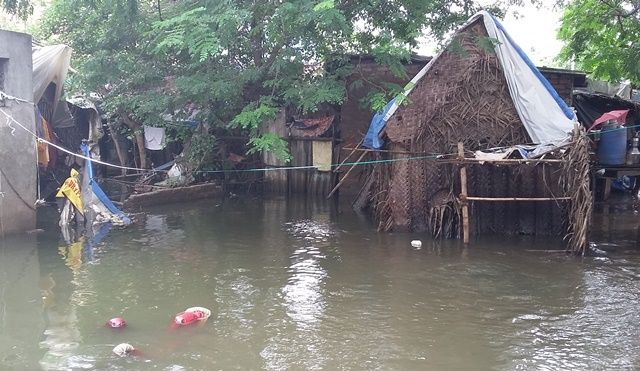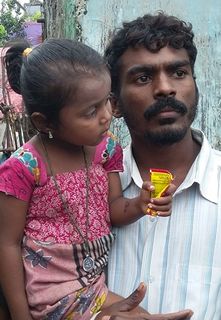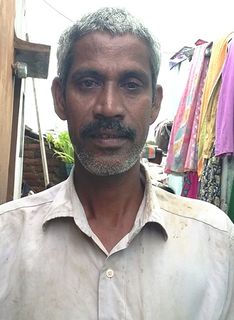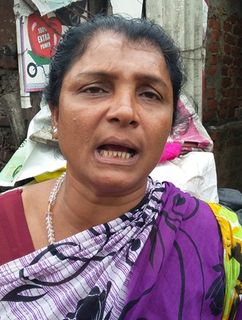Sasi Kumar & Moses Rajkumar
Severe floods caused by more than two weeks of torrential rains in the southern Indian state of Tamil Nadu have killed more than 100 people and submerged the houses of tens of thousands. The scale of the devastation is similar to the impact of the monsoonal storms that hit the region a decade ago.
By Thursday, the death toll in rain-related incidents across Tamil Nadu stood at 111. The state’s capital Chennai, previously known as Madras, was severely affected. Nearly half the city remained under water.
 Flooded huts
Flooded huts
Chennai has been promoted as a “developed” metropolis in order to attract local and foreign investment. However, while the city, state and national governments have provided facilities for big business investors, they have failed to develop the necessary infrastructure to control flooding, despite a record of storms.
Because of the flooding, the Tamil Nadu government shut down all educational institutions in 15 districts. The Southern Railway (SR) cancelled 15 trains due to the waterlogging of tracks last Tuesday. The Army, Navy, Air Force and Coast Guard were called out for relief work. Prices of vegetables and other foods have shot up.
The Tamil Nadu government, led by Chief Minister Jayalalithaa Jayaram of the All India Anna Dravida Munnetra Kazhagam (AIADMK), announced a 5 billion-rupee ($US80 million) relief and rehabilitation fund. The opposition parties, notably the Dravida Munnetra Kazhagam (DMK), sought to score points by criticising the relief fund as inadequate. Yet the flood disaster in Chennai and other parts of state is an indictment not only of the AIADMK but also the DMK, as the two parties have alternately governed the state for decades.
The Indian government’s response also has been slow and insufficient. On Thursday, Home Minister Rajnath Singh, that “all possible help” would be available after Chief Minister Jayalalithaa telephoned, but only after the state government had submitted a detailed memorandum next week. The central government would then send a team to make its own on-the-spot assessment of the damage and recommend release of assistance.
WSWS reporters visited the Konnur High Road and Podikadai in Chennai—areas affected by the flooding. Residents gathered around the reporters, describing their extremely difficult conditions and voicing anger toward the indifference of the authorities. They spoke of being swamped by the floods, not knowing where to find shelter, or how to find food and drinking water, with no government or party officials arriving to assist, only some NGOs providing relief measures.
 Kumar and his daughter
Kumar and his daughter
Kumar, 30, a day labourer, explained his living conditions before the flood. “We live in a small house provided by the government. This is a temporary shelter for us at lower rent. If we apply for a more comfortable house, we will have to pay more rent and a security deposit that is not affordable for me. My wage is 350 rupees [$US5.30] per day. But I don’t get regular work. I may get 25 days work per month. Out of that I have to pay 1,500 rupees for rent and about 500 rupees for electricity.
“We had almost ten days of rainfall, but so far neither the ruling AIADMK state legislator Neelakandan from our electoral constituency nor council members from the Madras Corporation have visited us. No government help has been given to us. They only come to us to seek our votes during polls. They wouldn’t come here to look into our interests. I hate all political parties.”
Maheshwari, 23, lives with her five children and her husband, a fish cart driver. She said: “My husband is a day labourer. He earns about 300 rupees a day. Our children go to public school. Due to the last ten days of rain my husband couldn’t go to his job. We have been put up in this waterlogged house. Inside and outside the house there are floodwaters that are mixed with sewerage drain flows.
“Some NGOs are providing us meal parcels. This house belonged to the government. They told us to vacate this house and go to the Thuraipakkam government housing scheme. But we declined because it is not easy for us to find jobs in the suburbs. The government wanted to demolish our house by bulldozer. We went to the courts and filed a case against that. The courts ordered a stay against the demolition.
“I don’t like any parties. Successive governments led by both the AIADMK and the DMK didn’t provide a job for my husband. Many people in this Podikadai area are flower sellers and fish cart drivers. As well as the painters and load lifters, they survive on a daily wage basis.”
 Murugan
Murugan
Murugan, 42, a bricklayer, said he was without a job or food due to ten days of rain and water flooding inside his house. Tenants in the area had no access to rations. “If I go to work I will get 600 rupees per day,” he said. “My wife does domestic housework. She brings some food from the house where she works, so we can eat a bit. We didn’t get support from the government.”
Chandra, 48, runs a small food shop, but her income is inadequate. “I also do domestic household work and work at wedding halls,” she said. Commenting on the role of governments, she said: “I have seen the rule of all the political parties. Neither the AIADMK nor the DMK gave me a widow’s pension. What is the use of this government if it cannot help people like me?”
At the SVM Nagar Housing, Nathiya, 27, said her house was invaded by floodwater mixed with sewerage. “As I have a bed I could manage to sleep above the water. But the conditions of those living on the pavement are so miserable. Where will they go?” She said most of those who live on the pavement were under a lot of stress, working in small shops in the Dashamahan area.
“Here drinking water is supplied by water lorries,” Nathiya said. “But not every day. Other clean water is not available. The water also stinks.”
 Manjula
Manjula
Manjula, 40, a contract worker at the Egmore railway station platform, is paid just 150 rupees per day. Out of her wage she has to spend 50 rupees for transport and food every day. Like many others in the same housing, she was suffering from sore feet because the floodwaters invaded her house.
Manjula has no other benefits, including medical insurance (ESI) and future saving funds (PF), provided at work. When she injured her toe at work last month, the management gave her nothing for medical expenses. “There are around hundred female workers employed along with me here,” she commented. “The management wouldn’t provide a cup of tea!”
No comments:
Post a Comment